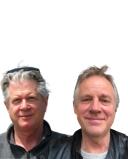Environment
The Year of the Mask
We can change the year of the mask into a year of change.
Posted November 10, 2020
If 2020 is the year of the mask, many historians think of 1848 as the year of revolutions. It was also a year of typhus: a terrible epidemic devastated Upper Silesia. Rudolf Virchow, the founding figure of social medicine who was also an attending physician there, wrote a famous report detailing the litany of administrative failures that mismanaged the crisis. He memorably insisted that "Politics is medicine writ large."
Getting on for two centuries later, we can see how right Virchow was. The latest and most germane form of the social medicine he pioneered is syndemics, which examines the complex interaction of sequential disease and comorbidity, social inequality, and the physical environment. The Lancet, a leading medical journal, has gone so far as to propose that thus far in 2020:
" ... interventions have focused on cutting lines of viral transmission, thereby controlling the spread of the pathogen … the story of COVID-19 is not so simple. Two categories of disease are interacting within specific populations—infection with severe acute respiratory syndrome coronavirus 2 … and an array of non-communicable diseases … clustering within social groups according to patterns of inequality deeply embedded in our societies. The aggregation of these diseases on a background of social and economic disparity exacerbates the adverse effects of each separate disease. COVID-19 is not a pandemic. It is a syndemic."
The syndemic is not directly caused by climate change, but its propulsion around the world was produced by the same forces that are wreaking environmental havoc, for COVID-19 is both a natural artifact and an "unintended consequence" of human action. It relies not merely on evolution, but on various entirely unnecessary social relations, such as the industrialized mis-cultivation, slaughter, distribution, and consumption of our fellow animals, alongside and as part of globalization, culture, capitalism, nationalism, climate, masculinity, and government.
Nobel laureate Amartya Sen avows that: "The impact of the environment on human lives must be among the principal considerations in assessing the value of the environment. To take an extreme example, in understanding why the eradication of smallpox is not viewed as an impoverishment of nature (we do not tend to lament: 'the environment is poorer since the smallpox virus has disappeared')."
One might protect sharks’ lives while recognizing the occasional devastation they cause to a tiny number of humans, but a virus that destroys the very life it inhabits is quite something else. Hence the tragic cull of mink in Spain, the Netherlands, and Denmark, necessary at an obvious level because the virus evolved towards transmission from them to us, in a way that threatened treatments and vaccines. But at a more profound level, this was necessary because of the animal’s wholesale husbandry and slaughter to suit the fashion industry in farms that institutionalize breathtaking brutality. In the US, thousands have been left to die agonizing deaths from the virus.
Nature’s duality—that it is self-generating and sustaining, yet its continuation is contingent on human rhetoric and despoliation—makes both sides vulnerable. Without nature, there can be no humanity, while changes in the material world caused by people and their tools compromise the survival of the planet’s most skillful and willful, productive and destructive, inhabitant.
The syndemic has seen political stances and manifestoes adopted by august institutions of science. Scientific American endorsed a presidential candidate for the first time in its 175-year history. Nature, always more socially-engaged, did the same. Manifestos about politics emerged from The Lancet, the WHO—for heaven’s sake, even the hitherto-almost stultifyingly lugubrious New England Journal of Medicine. Many scientists have rallied behind The Lancet’s calls to decolonize responses to the disease, and eminent public figures favor a people’s vaccine.
The Lancet has also redeployed insights from its Commission on Non-Communicable Diseases to address the crisis. The Commission has criticized dominant health and development agencies for focusing on the relatively apolitical topic of epidemiology to the exclusion of urbanization, lifestyles, wealth, and poverty. This includes a Pledge for Planetary Health to Unite Health Professionals in the Anthropocene to take account of the environment and social inequality as part of the precepts in an expansion of Hippocrates’ Epidemics principles: "to help, or at least to do no harm."
This terrifying time, this year of the mask, may yet prove providential for the environment—if we learn the lessons of how human economic priorities have helped produce the disaster—not just evolution. And we show the courage of the science and medicine journalists, researchers, and practitioners who are prepared to write in ways that allow us to see how concerned they are about the very infrastructure of our lives.




